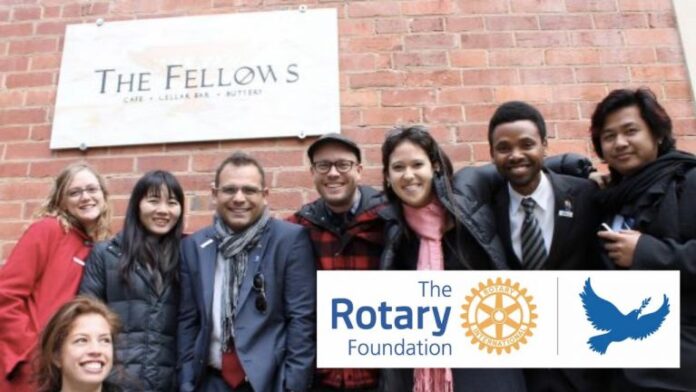In a world often marred by conflict, inequality, and injustice, the pursuit of peace remains one of humanity’s most pressing challenges. For over a century, Rotary International has been at the forefront of fostering peace and understanding across borders. One of its most impactful initiatives is the Rotary Peace Fellowships, a program designed to empower individuals with the skills, knowledge, and networks needed to address the root causes of conflict and promote sustainable peace. In this blog, we’ll explore what the Rotary Peace Fellowships are, their significance, and how they are shaping the next generation of peacebuilders.
READ MORE: Latvia Government Scholarships 2025
What Are Rotary Peace Fellowships?
The Rotary Peace Fellowships are a fully funded academic program that provides exceptional leaders from around the world the opportunity to pursue a master’s degree or professional development certificate in peace and conflict resolution. Established in 2002, the program is offered in partnership with some of the world’s leading universities, known as Rotary Peace Centers. These centers are located at:
- Duke University and University of North Carolina at Chapel Hill, USA
- International Christian University, Japan
- University of Bradford, England
- University of Queensland, Australia
- Uppsala University, Sweden
Each year, Rotary selects up to 130 peace fellows—50 for the master’s program and 80 for the professional development certificate. These fellows come from diverse backgrounds, including education, government, non-profits, and the private sector, but they share a common goal: to make the world a more peaceful place.
Why Are Rotary Peace Fellowships Important?
- Addressing Global Challenges: From armed conflicts to social injustices, the world faces complex challenges that require innovative solutions. Rotary Peace Fellows are trained to analyze these issues critically and develop practical strategies to address them.
- Building a Network of Changemakers: The program brings together individuals from different cultures, religions, and professions, fostering a global network of peacebuilders. This network is a powerful resource for collaboration and knowledge-sharing.
- Empowering Local Communities: Many Rotary Peace Fellows return to their home countries to implement projects that address local issues, such as education for refugees, women’s empowerment, and conflict resolution in post-war regions.
- Promoting Rotary’s Mission: The fellowships align with Rotary’s mission of “doing good in the world” by investing in individuals who have the potential to create lasting change.
The Impact of Rotary Peace Fellows
Since its inception, the Rotary Peace Fellowships have produced over 1,700 alumni working in more than 140 countries. These alumni are making a tangible difference in their communities and beyond. Here are a few examples of their impact:
- Conflict Resolution: Fellows have mediated disputes in war-torn regions, helping to broker peace agreements and rebuild communities.
- Education: Many alumni work in education, teaching peacebuilding skills to the next generation and promoting cross-cultural understanding.
- Policy Advocacy: Some fellows have gone on to work with governments and international organizations, influencing policies that promote peace and development.
- Humanitarian Work: Others are involved in humanitarian efforts, providing aid to refugees and displaced persons.
How to Apply for a Rotary Peace Fellowship
The application process for the Rotary Peace Fellowships is highly competitive. Here’s what you need to know:
- Eligibility: Applicants must have a strong academic background, professional experience in peacebuilding, and a clear vision for how they will contribute to peace and conflict resolution.
- Application Timeline: The application period typically opens in February and closes in May. Selected candidates are announced in November.
- Selection Criteria: Rotary looks for candidates who demonstrate leadership potential, a commitment to peace, and the ability to work effectively in diverse settings.
- Supporting Documents: Applicants must submit academic transcripts, letters of recommendation, and a personal statement outlining their goals and motivations.
Why You Should Consider Applying
If you’re passionate about making a difference in the world, the Rotary Peace Fellowships offer a unique opportunity to gain the skills and connections needed to amplify your impact. Whether you’re an educator, activist, or policymaker, this program can help you take your work to the next level.
Moreover, being a Rotary Peace Fellow is not just about the academic experience—it’s about joining a global community of like-minded individuals who are committed to creating a more just and peaceful world.
Sum Up
The Rotary Peace Fellowships are more than just a scholarship program; they are a movement. By investing in the education and development of peacebuilders, Rotary is helping to create a ripple effect of positive change that extends far beyond the individual fellows. As we face an increasingly interconnected and complex world, programs like these remind us that peace is not just a distant dream—it’s a goal we can achieve through collaboration, education, and action.



